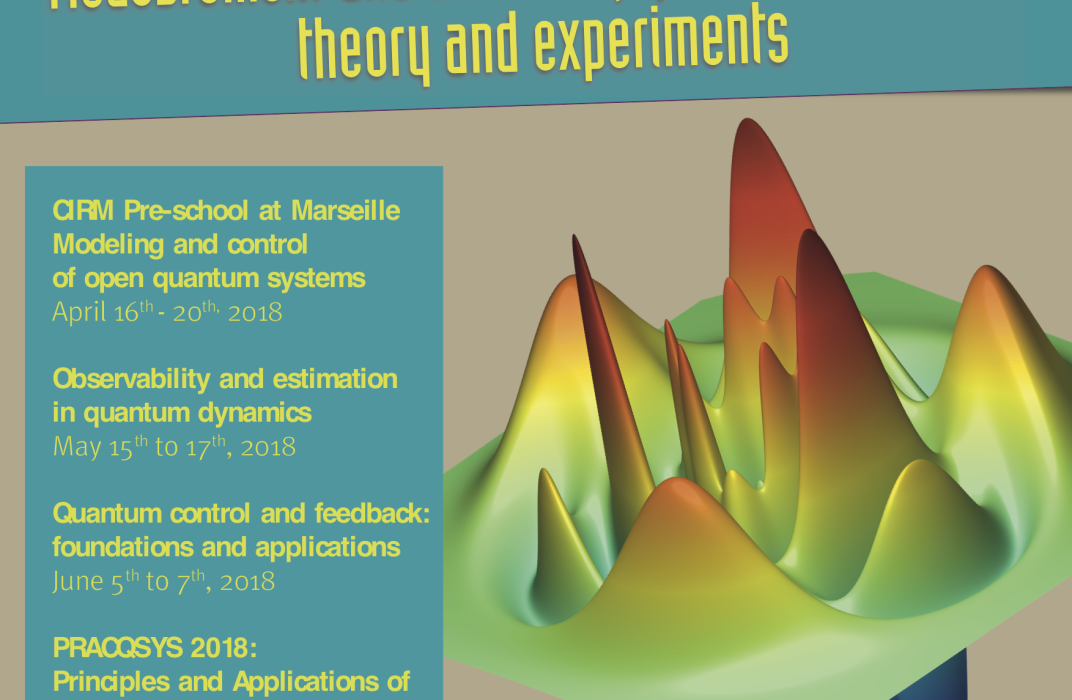Constant improvements of lasers, cryogenics, electronics and nano-fabrication techniques enabled a new, bottom-up approach, where elementary quantum objects are manipulated individually and assembled into more and more complex systems. Thanks to the efforts of many experimental teams, including those of S. Haroche and D. J. Wineland who both received the Nobel Prize in 2012, motional states of trapped ions, internal states of atoms, light fields in optical cavities or mesoscopic currents in superconducting circuits can now be precisely controlled at the quantum level. Besides the fundamental interest in realizing century-old Gedankenexperiments, these efforts are motivated by applications in quantum logic, quantum communications and quantum simulations.
This intense experimental activity triggered the development of the quantum theory of control, inspired by its classical counterpart. Among other specificities, quantum measurement, however, forbade the direct transposition of the classical theory to the quantum world. Because it is nondeterministic by nature, quantum measurement induces noise. Because it projects the system on a given state depending on the outcome of the measurement, it is destructive. These two features forced physicists and mathematicians to completely reconsider techniques and scenarios based on measurement, in close connection to the current experimental state of the art. A whole new theoretical framework was thus developed for quantum error diagnosis/correction. Quantum filtering, i.e. filtering of quantum measurement-induced noise, was also designed in the context of quantum feedback control. Put forward in the context of quantum optics, quantum state and process tomography technique is another example of a successful translation to the quantum world of a classical technique. Experiments keep inspiring new theoretical approaches, such as reservoir engineering, and continue to require more and more powerful mathematical techniques allowing, e.g., for the precise modeling and simulation of quantum systems and networks.
The goal of this thematic quarter is to give the opportunity to mathematicians and physicists (both experimentalists and theorists) in the field to gather on the theme of measurement and control of quantum systems. The program envisioned should allow the participants to gain an up-to-date view of theoretical achievements and open questions enriched by experimental implementations and needs.


